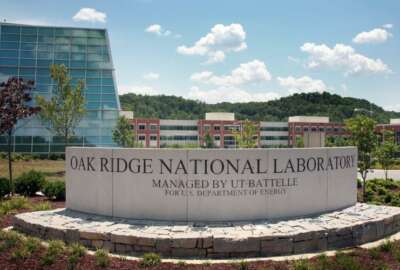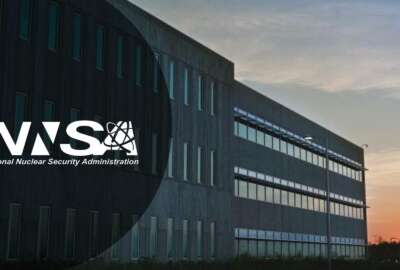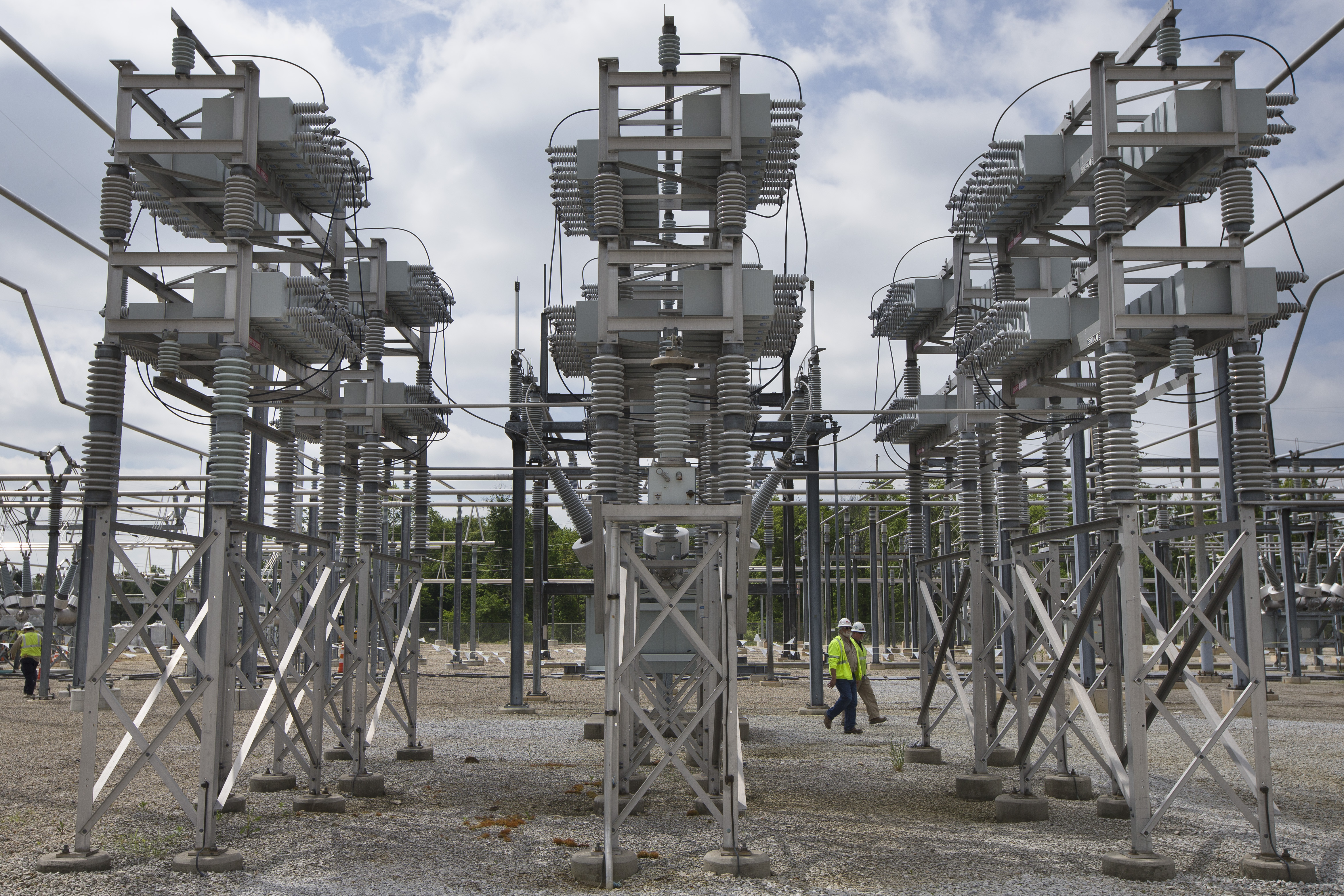

As national security threats seem to multiply constantly, nuclear non-proliferation remains an abiding priority. Now there's a new guy at the helm of the National...
Best listening experience is on Chrome, Firefox or Safari. Subscribe to Federal Drive’s daily audio interviews on Apple Podcasts or PodcastOne.
As national security threats seem to multiply constantly, nuclear non-proliferation remains an abiding priority. Now there’s a new guy at the helm of the National Security Sciences Directorate, part of the Oak Ridge National Laboratory. Associate lab director Dr. Moe Khaleel joined the Federal Drive with Tom Temin to discuss his new role.
Interview transcript:
Tom Temin: Dr. Khaleel, good to have you on.
Moe Khaleel: Good morning, Tom, good to be with you.
Tom Temin: The National Security Sciences Directorate, where does that fit into this whole, there’s a lot of agencies that impinge on nuclear non-proliferation across the government. Your unit at Oak Ridge National Laboratory, how does that all fit into the architecture here?
Moe Khaleel: We are actually the leading lab in the nuclear fuel cycle science. So ORNL works to enhance our non-proliferation detection capabilities to outpace the adversary’s ability to conceal illicit production, sabotage of nuclear materials. So we actually are engaged in all aspects of nuclear non-proliferation to support the National Nuclear Security Administration and NSA, the State Department and the Defense Threat Reduction Agency. So we look at, we work on, the complete nuclear fuel cycle. We do a lot of r&d, but we do a lot of other support. We also lead the non-proliferation stewardship program to ensure the continuity of facilities, equipment and human capacity in the fuel cycle r&d for non-proliferation. Oak Ridge also, Tom, does a lot of work in terms of assisting in international treaty obligation verification to ensure member states are in compliance with the with the agreement. There is more work to do in safeguard, and so on.
Tom Temin: What are the big scientific challenges these days? I mean, there’s lots of geopolitical challenges around the world. You can rattle off a bunch of them with respect to nuclear and non-proliferation. But what are the scientific challenges or the research challenges, nuclear detection and fuel?
Moe Khaleel: I think, you know, there’s a lot of upcoming in new technologies — advanced manufacturing, a lot of centrifuge technologies. And we are building actually, at Oak Ridge, a lot of capabilities in the area of detection, you know, looking at centrifuge processes and how we model these, and how we can actually, you know, detect them and detect these capabilities elsewhere. But advancing, you know, a lot of new capabilities.
Tom Temin: So it sounds like you need to — the United States needs — the ability to detect where nuclear fuel might be manufactured, and then also be able to detect it in motion, say, from one country to another, from one entity to another.
Moe Khaleel: True. And, you know, we’re working a lot on building these capabilities, especially, you know, data sciences, artificial intelligence capabilities that go along with building a new sensing capabilities.
Tom Temin: But what has changed in sensing? I mean, isn’t nuclear fuel basically the same as it’s been since the dawn of the atom splitting?
Moe Khaleel: Well, but there’s a lot of modalities of sensing that you can bring together. And you can actually generate lots of data. And a lot of information is really in the lots of data. We used to do a lot of data reduction, and you missed a lot. So there is a new emerging, you know, data sciences capabilities and artificial intelligence, different communication capabilities that you can bring together, to actually enhance our detection and sensing capabilities.
Tom Temin: Yeah, maybe draw that out for us a little bit, because I’m thinking of the fact that, because it’s radioactive, the fuel is detected with instruments that can detect the isotopes flying off. I guess I’m at the edge of my scientific knowledge here.
Moe Khaleel: A lot of this stuff, Tom, can be satellite imagery, it can be thermal signatures. So it’s not really in nuclear, per se, but there’s a lot of other, you know, sensing capabilities. When you bring them together, they tell the story.
Tom Temin: And give us a sense of the size of the staff and the kinds of facilities you have here to develop these data sciences and detection sciences.
Moe Khaleel: Well, Oak Ridge National Lab is is about 6,000 staff. About half of them, you know, are doing research with advanced degrees, PhDs and so on. The lab’s annual operating budget is about $2.4 billion. We’re really, Oakridge, its heritage is in nuclear in a lot of ways. So we have a lot of nuclear capabilities, from fission to fusion to non-proliferation. You know, the first continuously run reactor was done here at Oak Ridge National Lab. So we bring our simulation capabilities. We actually have, hopefully soon, the world’s fastest computer called Frontier. We bring these capabilities, you know, together to be able to address the challenges that the national security is facing.
Tom Temin: We’re speaking with Dr. Moe Khaleel. He’s the associate director for the National Security Sciences Directorate at the Oak Ridge National Laboratory. And we have been talking about the nuclear security — nuclear non-proliferation — but in the announcement of your new job, you’re also looking at biosecurity, cybersecurity, and grid security, among some of the domains. So what are the issues in grid security these days?
Moe Khaleel: Well, I think, you know, our electrical grid in the United States is the most complex machine that we have, you know. And, you know, with with time, especially with near net zero or negative carbon emissions, we’re going to be doing a lot of distributed generation on the electrical grid. We are going to have charging capabilities — charging, you know, on the highways and charging in homes. So now the attack vector, the number of points you could attack the electrical grid, especially nation states, is going to be much, much larger. And so we’re all gonna count on that. So the security of the electrical grid is gonna be a challenge, you know, for us,. But this is some challenge we need all to rise to work together to address it.
Tom Temin: Because grid security can be a cyber issue, someone can bring a station down, and so on. It’s also a physical issue, because you can have destruction of wires and towers, and most of the grid is above ground in the United States.
Moe Khaleel: Right.
Tom Temin: And then it’s also kind of a power reliability security issue. So you’ve got a lot of different vectors of security.
Moe Khaleel: I think, Tom, the big challenge, really, in my opinion, is the cyber attack. You know, a nation state or certain individuals, can actually sit there and be in our systems, do a lot of reconnaissance for quite some time, understand what we are about and attack the most critical parts of our system. So you know, we really need a, you know, one option is to get the communication and controls of the electrical grid off of the public Internet. That may not be, you know, easily done. The other is really to build operational centers — regional operational centers — across the United States, where agencies, our utilities, and entities like us work together to build the right capabilities such that we can actually monitor things in real time, especially, you know, in new kinds of malware or attacks, right. And I think these are two very critical things, you know, we can think about. But there’s a lot of science capabilities that need to be built, because you have to sift through lots of data to be able to figure out that needle in the haystack. But it’s critical.
Tom Temin: And by the way, of course, you can’t do much damage to the electrical grid from a wall socket. But what about these charging stations you mentioned? And there’s going to be millions of those eventually. Are they ways into the grid, do we know?
Moe Khaleel: Yes, I think so. They’re going to be connected, right? So it’s extremely important to build, you know, security at the beginning. And I think, Tom, there’s a lot of physical systems that we deal with. We talk about the the the charging, but also the cars. If we’re going to have autonomous cars in the future — and I hope we do, okay — you know, then we need to bake in security. And so cybersecurity of any physical system is going to be extremely, extremely important.
Tom Temin: All right. And while we have you, I wanted to just ask about you personally, because you started out — I’m again looking at your bio — as a mechanical engineer. I think of bridges and towers, a metal structures with rivets and soldering. But how did you get into this type of work that’s data related, non-mechanical, also in the federal domain?
Moe Khaleel: Well, I mainly, you know, work a lot on modeling and simulation, and I work on modeling and simulation of new materials for the next generation vehicles. And in doing so, I got into high performance computing. This is, Tom, the beauty of our national labs. You know, you bring talents in from different backgrounds, people work together, we learn from each other, and we embark on new journeys. And you know, I was in Pacific Northwest National Lab, and I lead a division called computational sciences and mathematics, and I actually co-founded an institute at the University of Washington in Seattle called the Northwest Institute for advanced computing, I think our our labs, you know, offer us these opportunities. And so we can contribute in a variety of ways. It’s a hell of a journey. It’s a great journey,
Tom Temin: And being an associate lab director — and there’s hundreds of people and, as you mentioned, billions of dollars — do you get a chance to do some science of your own?
Moe Khaleel: I did there for quite some time. But I think, you know, as leaders of the organization, we get the joy to interact and work with people, advise, and so on. So although we’re not doing, you know, all the stuff by hand, we’re always there and working together. And that’s again, one of the beauties about Oak Ridge National Lab. We’re a big family, we work together and we’re fully engaged.
Tom Temin: Dr. Moe Khaleel is associate director for the National Security Sciences Directorate at the Oak Ridge National Laboratory. Thanks so much for joining me.
Moe Khaleel: Thank you, Tom. You have a great day.
Copyright © 2025 Federal News Network. All rights reserved. This website is not intended for users located within the European Economic Area.
Tom Temin is host of the Federal Drive and has been providing insight on federal technology and management issues for more than 30 years.
Follow @tteminWFED



